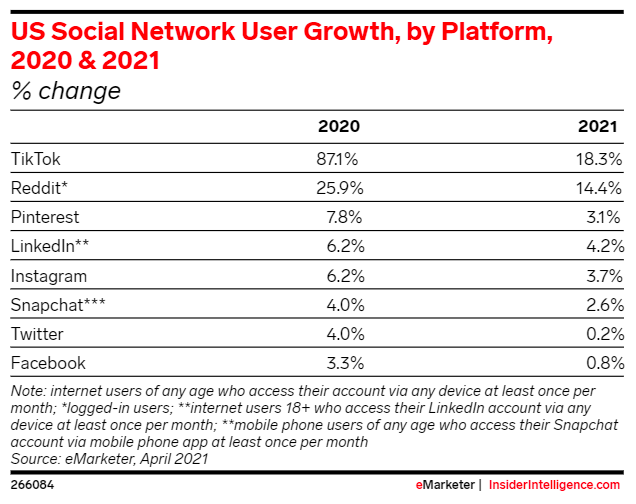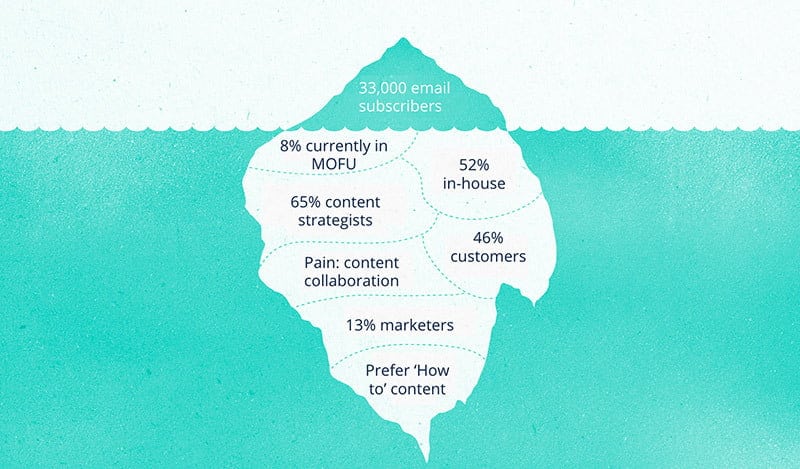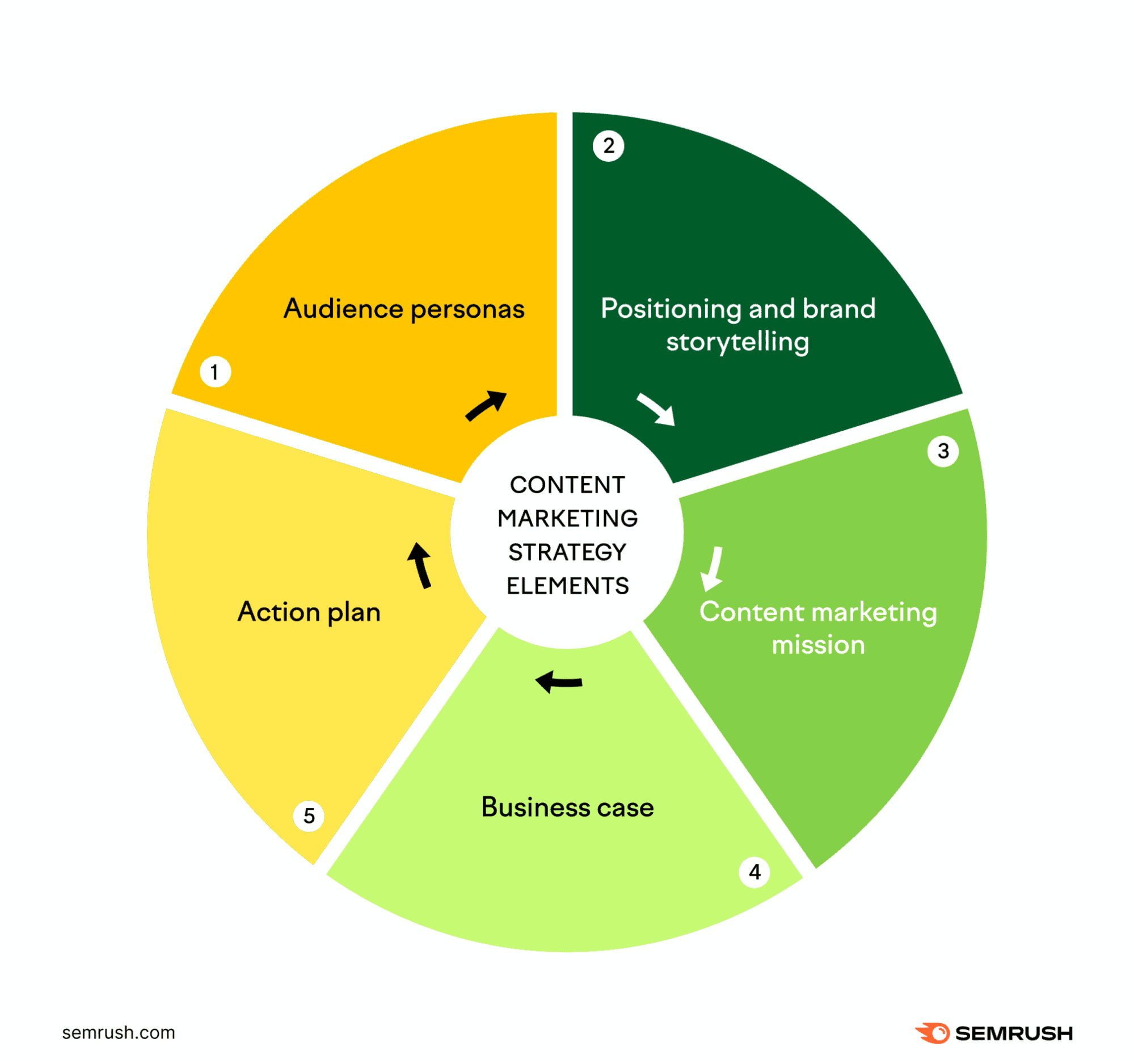Social media usage by businesses is growing rapidly. Be it a B2C business or a B2B, the growth is phenomenal.

Source:- SproutSocial
Managing social media accounts is a crucial task for businesses of all sizes. Social media platforms offer a unique way to connect with your target audience, promote your brand, and drive sales.
However, creating and executing a successful social media strategy can be a daunting task. There are many different platforms to choose from, each with its own set of features and best practices, and it can be difficult to know where to start.
We will begin by discussing the importance of understanding your audience. Identifying and understanding the demographics, interests, and behavior of your target audience is essential for tailoring your content and customer engagement strategy to their preferences.
Next, we will discuss the importance of setting clear goals for your social media accounts. This will help you stay focused and measure the success of your efforts.
We will also cover the importance of creating a content strategy. Planning out the types of content you will share on your accounts, including text, images, videos, and live streams, and scheduling them in advance, will ensure consistency and maximize engagement.
Additionally, we will discuss the importance of actively engaging with your audience by responding to comments and messages in a timely manner, and by asking questions, running polls, and hosting giveaways.
We will also discuss the importance of utilizing analytics to monitor your account’s performance and make data-driven decisions. And collaborating with influencers in your industry to reach new audiences and increase brand awareness.
We will also touch on the importance of staying up-to-date with the latest trends and features on different social media platforms, measuring and adjusting your strategy regularly, and being authentic and consistent with your posting schedule, branding and voice across all platforms.
By following the steps outlined in this guide, you will be able to develop a social media strategy that helps you achieve your business goals and objectives. Whether you’re just getting started with social media or looking to improve your existing efforts, this guide will provide you with the tools and strategies you need to succeed on social media.
Let’s begin!
Understand your audience
Understanding your audience is the foundation of any successful social media strategy. Without a clear understanding of who your target audience is, it’s difficult to create content that resonates with them and engages them in a meaningful way. Identifying and understanding your audience’s demographics, interests, and behavior will help you tailor your content and engagement strategy to their preferences, making it more likely that they will engage with your brand.
To understand your audience, start by creating a buyer persona. A buyer persona is a fictional representation of your ideal customer based on real data and research. It should include information such as age, gender, location, occupation, income, education, and interests. Once you have a clear picture of your target audience, you can use this information to create content and campaigns that speak directly to their needs and interests.
You can also use social media analytics tools to gain insights into your audience’s behavior on social media. These tools can provide you with information such as the demographics of your followers, the times of day when they are most active, and the types of content they engage with the most. By using this information, you can create a content calendar that is tailored to your audience’s preferences and habits.
In addition to using analytics and buyer personas, you should also actively engage with your audience by responding to comments and messages in a timely manner, and by asking questions, running polls, and hosting giveaways. This will help you build a relationship with your audience and gain a better understanding of their needs and interests.
This iceberg diagram is a good way to think about how much variety you need to understand about your audience segments, even among just one of your marketing channels.

By understanding your audience, you will be able to create a social media strategy that speaks directly to their needs and interests, resulting in higher engagement, and ultimately more success for your business.
Set clear goals
Setting clear goals is an essential step in creating a successful social media strategy. Without clear goals, it can be difficult to measure the success of your efforts and make data-driven decisions. Defining your goals will also help you stay focused and ensure that all of your efforts are aligned with your overall business objectives.
When setting goals for your social media accounts, it’s important to make sure they are Specific, Measurable, Achievable, Relevant, and Time-bound (SMART). This means that your goals should be specific and clearly defined, measurable so you can track progress, achievable and realistic, relevant to your overall business objectives, and have a specific deadline.

For example, your goal could be to increase brand awareness by 20% in the next 3 months by reaching a specific number of followers on Instagram or to drive website traffic by 10% by the end of the quarter using social media advertising.
Once you have set your goals, you can create a plan of action to achieve them. This may include creating a content calendar, implementing a paid social media advertising campaign, or partnering with influencers in your industry. Regularly measuring and analyzing your progress will help you make data-driven decisions and adjust your strategy as needed.
It’s also important to review your goals regularly and make adjustments as needed. Social media platforms and audience behavior are constantly changing, so your goals and strategy should be flexible and adaptable. By setting clear goals and regularly reviewing and adjusting them, you can ensure that your social media strategy is aligned with your overall business objectives and driving real results for your business.
Create a content strategy
Creating a content strategy is a crucial step in managing your social media accounts effectively. A well-planned content strategy will help you consistently create and share content that resonates with your target audience, resulting in higher engagement and ultimately more success for your business.

When developing your content strategy, it’s important to consider the types of content that you will share on your social media accounts. This may include text posts, images, videos, and live streams, and should be tailored to the specific needs and interests of your target audience. For example, if your target audience is primarily visual, you may want to focus on creating more video and image content.
It’s also important to schedule your content in advance so that you can ensure consistency and maximize engagement. This will also save you time, by allowing you to work on several pieces of content at once and have them ready to go in advance. You can use a content calendar to help you plan and organize your content.
Your content strategy should also include a mix of different types of content, such as educational, entertaining, and promotional. You can also use different formats, such as text posts, images, videos, and live streams, to keep your content fresh and engaging.
To ensure that your content strategy is effective, it’s important to regularly review and analyze your performance using social media analytics tools. These tools can provide you with valuable insights into the types of content that are resonating with your audience and which are not, allowing you to make data-driven decisions and adjust your strategy as needed.
By creating a content strategy that is tailored to the specific needs and interests of your target audience, scheduling it in advance, and regularly reviewing and adjusting your performance, you can ensure that your social media accounts are consistently producing high-quality content that resonates with your audience and drives real results for your business.
Engage with your audience
Engaging with your audience is an essential part of managing your social media accounts effectively. By actively engaging with your followers, you can build a relationship with them, gain a better understanding of their needs and interests, and ultimately increase engagement and drive more success for your business.
Here’s a simple example from Pocket:

One way to engage with your audience is by responding to comments and messages in a timely manner. This shows your followers that you value their input and are interested in their feedback. It also helps you stay connected with your audience and address any concerns they may have.
Another way to engage with your audience is by asking questions, running polls, and hosting giveaways. This will encourage your followers to interact with your brand and provide valuable insights into their needs and interests. It also creates a sense of community and fosters a positive relationship with your audience.
You can also engage with your audience by creating content that is interactive and encourages them to participate. For example, you can create a “Question of the Day” or a “Caption this” post, which will encourage your followers to share their thoughts and ideas.
Another way to engage with your audience is by hosting live streams, where you can directly interact with your followers in real time. This allows you to answer questions, provide updates, and build a stronger connection with your audience.
Additionally, you can use social media listening tools to monitor your social media mentions, hashtags, and keywords. This will give you a better understanding of what your audience is talking about, allow you to join the conversation, and address any issues or concerns they may have.
By actively engaging with your audience, you can build a relationship with them, gain a better understanding of their needs and interests, and ultimately increase engagement and drive more success for your business.
Utilize analytics
Utilizing analytics is an important aspect of managing your social media accounts effectively. Social media analytics tools provide valuable insights into your account’s performance and allow you to make data-driven decisions that can help improve your strategy and drive more success for your business.

Most social media platforms have built-in analytics tools that allow you to track metrics such as engagement, reach, and follower growth. These tools provide a wealth of information that can help you understand your audience better and optimize your content strategy. For example, you can see which types of content are performing the best, and when your audience is most active on the platform.
Third-party analytics tools can also provide more in-depth data, such as demographics and location of your followers, and even sentiment analysis, this allows you to make informed decisions about your social media strategy.
Analytics can also be used to measure the success of your social media campaigns. By setting goals and tracking metrics such as engagement, reach, and conversions, you can see how your campaigns are performing and make adjustments as needed.
It’s important to regularly review your analytics and make adjustments to your strategy as needed. For example, if you notice that your engagement is decreasing, you may need to adjust your content strategy or consider running a social media advertising campaign.
By utilizing analytics and making data-driven decisions, you can optimize your social media strategy and drive more success for your business. It’s important to regularly check on your analytics to make sure that you are on track to reach your goals and make adjustments as necessary.
Custom software can be used to automatize all processes. You can look for already-created software tools or hire a dedicated software development team to get your own.
Collaborate with influencers
Collaborating with influencers is a powerful way to reach new audiences and increase brand awareness on social media. An influencer is a person who has a significant following on social media and is considered an expert in their field. They can use their platform to promote your brand to their followers, who are likely to be interested in your products or services.
When selecting influencers to collaborate with, it’s important to choose those who align with your brand values and have a following that is similar to your target audience. You should also consider their engagement rate, as this will give you an idea of how active and engaged their followers are.
Once you have selected the influencers you would like to work with, you can begin to plan your collaboration. This may include creating sponsored posts, hosting a giveaway, or running a social media campaign together. It’s also important to have clear communication and expectations from the collaboration and to establish the terms of the agreement such as compensation, deliverables, and the duration of the partnership.
Influencer collaborations can be an effective way to reach new audiences, increase brand awareness, and drive more success for your business. However, it’s important to collaborate with influencers who align with your brand values and have a following that is similar to your target audience and also to have a clear agreement on the terms of the partnership.
It’s also important to monitor the results of your influencer collaborations and use the data to inform future partnerships. By regularly reviewing the performance of your influencer collaborations, you can make data-driven decisions and optimize your strategy to drive more success for your business.
Here’s an example of an influencer collaboration:

Stay up-to-date
Staying up-to-date with the latest trends and features on different social media platforms is an essential aspect of managing your social media accounts effectively. Social media platforms are constantly evolving, and new features and best practices are being introduced all the time. Keeping up with these changes can help you take advantage of new opportunities and stay ahead of the competition.
One way to stay up-to-date with the latest trends and features is to regularly check the social media platforms’ official blogs, where they often announce new features and updates. You can also follow industry experts and influencers in your field, as they often share information about the latest trends and best practices.
Another way to stay up-to-date is to participate in social media communities and groups. These groups provide a platform for sharing information and discussing the latest trends and best practices. You can also attend social media conferences and events, where you can learn from experts and network with other professionals in your field.
Additionally, you can use analytics tools to track trends and monitor the performance of your and your competitors’ profiles. This will give you insights into what’s working and what’s not in the whole industry, and allow you to make adjustments accordingly.
By staying up-to-date with the latest trends and features on different social media platforms, you can ensure that you’re using them effectively and drive more success for your business. It’s important to regularly review the new features and best practices and adjust your strategy as needed.
Measure and adjust
Measuring and adjusting your social media strategy is a critical step in managing your social media accounts effectively. Without regularly measuring and analyzing your performance, it can be difficult to know if your efforts are driving real results for your business.
When measuring the success of your social media strategy, it’s important to track key metrics such as engagement, reach, follower growth, and conversions. These metrics will provide valuable insights into your account’s performance and allow you to make data-driven decisions.
It’s also important to regularly review your goals and make adjustments as needed. Social media platforms and audience behavior are constantly changing, so your goals and strategy should be flexible and adaptable.
For example, if you’re not seeing the engagement or reach you had hoped for, you may need to adjust your content strategy or consider running a social media advertising campaign. If you do not see an increase in conversions, you may need to adjust your call-to-action or targeting. You can also add a Trackable QR Code to your social media creatives as a Call To Action. This, in turn, will help you make your creatives both engaging and increase in the number of conversions.
It’s also important to regularly review your analytics and make adjustments to your strategy as needed. For example, if you notice that your engagement is decreasing, you may need to adjust your content strategy or consider running a social media advertising campaign.
By measuring and adjusting your social media strategy regularly, you can ensure that your efforts are driving real results for your business. Additionally, by keeping track of your progress, you can make data-driven decisions to optimize your strategy and achieve your business objectives.
Be authentic
Being authentic and consistent across all platforms is an essential aspect of managing your social media accounts effectively. Social media users can spot inauthenticity from a mile away, and if your brand is not genuine and consistent, you risk losing their trust and engagement.
Being authentic means being true to your brand, values, and voice. It means being transparent and honest in your interactions with your followers, and not trying to be something you’re not. It’s important to be authentic in all aspects of your social media presence, from the way you interact with your followers to the types of content you share.
Being consistent means maintaining consistent branding and voice across all platforms. This means using the same profile picture, bio, color scheme, and the same tone of voice on all of your social media accounts. It also means maintaining a consistent posting schedule and sharing similar types of content across all platforms.
By being authentic and consistent across all platforms, you can build trust and credibility with your followers. It will also make it easier for them to recognize and remember your brand, which can lead to more engagement and ultimately more success for your business.
Consistency also allows you to maintain a clear image of your brand across all platforms, which helps you in building a strong brand identity and ultimately increases the chances of reaching new audiences and converting them into customers.
In conclusion, being authentic and consistent across all platforms is essential for building trust and credibility with your followers, increasing engagement, and driving more success for your business. It’s important to be true to your brand, values, and voice and maintain consistency in branding, tone of voice, and posting schedule.
Be consistent
Maintaining a consistent posting schedule is an essential aspect of managing your social media accounts effectively. Consistency in your posting schedule can help you keep a regular flow of content and engagement, which can help increase your reach, engagement, and ultimately more success for your business.
When creating a posting schedule, it’s important to consider the specific needs and habits of your target audience. For example, if your target audience is primarily active on social media during their commute, it may be more beneficial to post your content during the morning and evening rush hours.
It’s also important to create a mix of different types of content, such as educational, entertaining, and promotional, and to schedule them in advance. This will help you ensure consistency and maximize engagement.
A content calendar can be a great tool for planning and organizing your content. It allows you to see what content you have planned for the upcoming weeks or months, and make adjustments as needed.
You can also use social media scheduling tools to automate your posting schedule and save time. These tools allow you to schedule your content in advance and publish it automatically at the best times for your audience.
It’s also important to review your posting schedule regularly and make adjustments as needed. For example, if you notice that engagement is lower on certain days of the week, you may need to adjust your posting schedule.
By maintaining a consistent posting schedule, you can ensure that your social media accounts are consistently producing high-quality content that resonates with your audience and drives real results for your business. It’s important to consider the needs and habits of your target audience, schedule in advance, and review your posting schedule regularly to make adjustments as needed.
Final thoughts on managing social media accounts
In conclusion, effectively managing social media accounts requires a well-planned strategy that takes into consideration several key factors such as understanding your audience, setting clear goals, creating a content strategy, engaging with your audience, utilizing analytics, collaborating with influencers, staying up-to-date with the latest trends and features, measuring and adjusting your strategy, being authentic and consistent across all platforms, and maintaining a consistent posting schedule.
By following these guidelines, you can create a social media strategy that resonates with your audience and drives real results for your business. It’s important to remember that social media is constantly changing, so it is important to regularly review and adjust your strategy to ensure that it stays effective.


